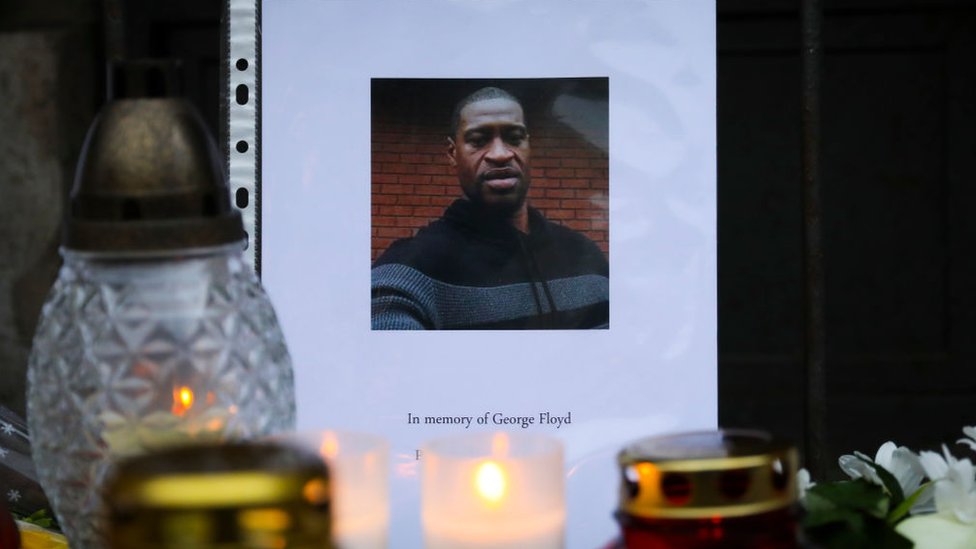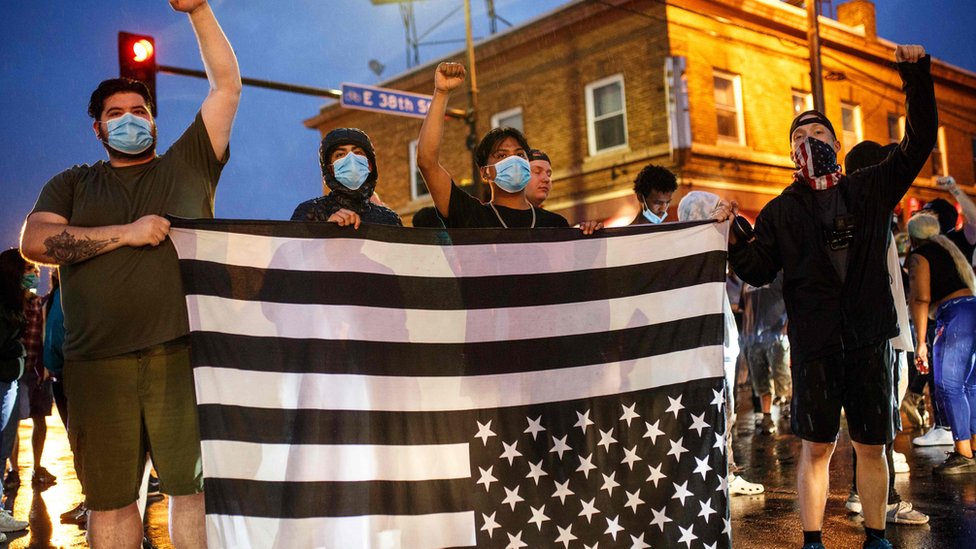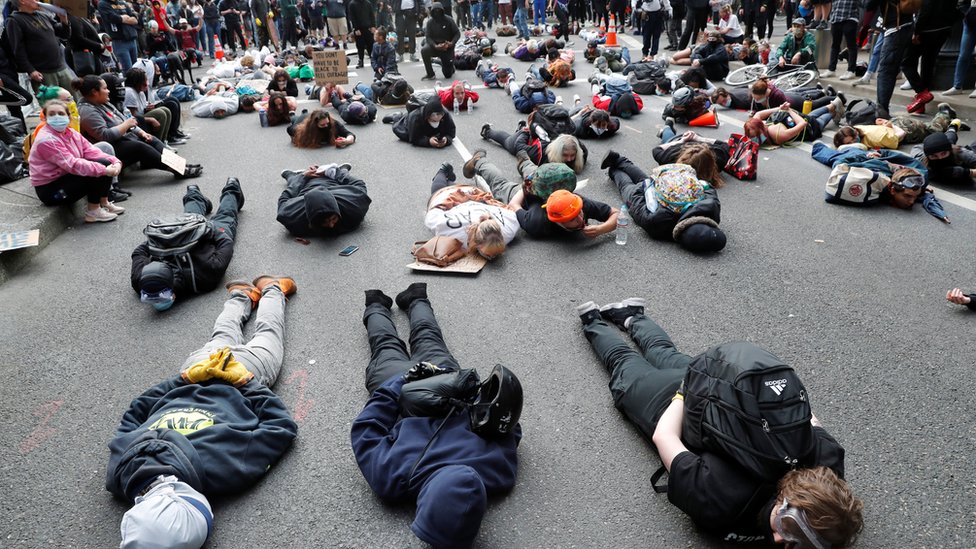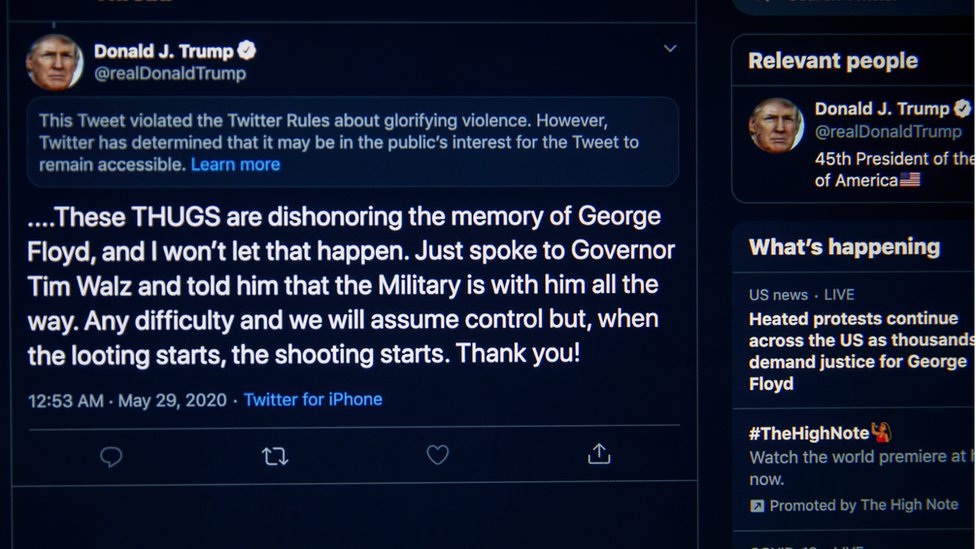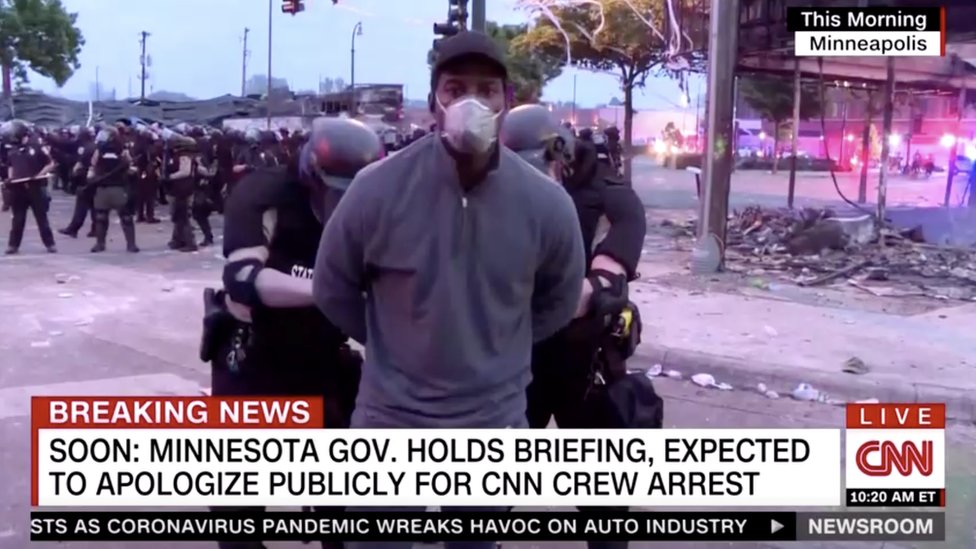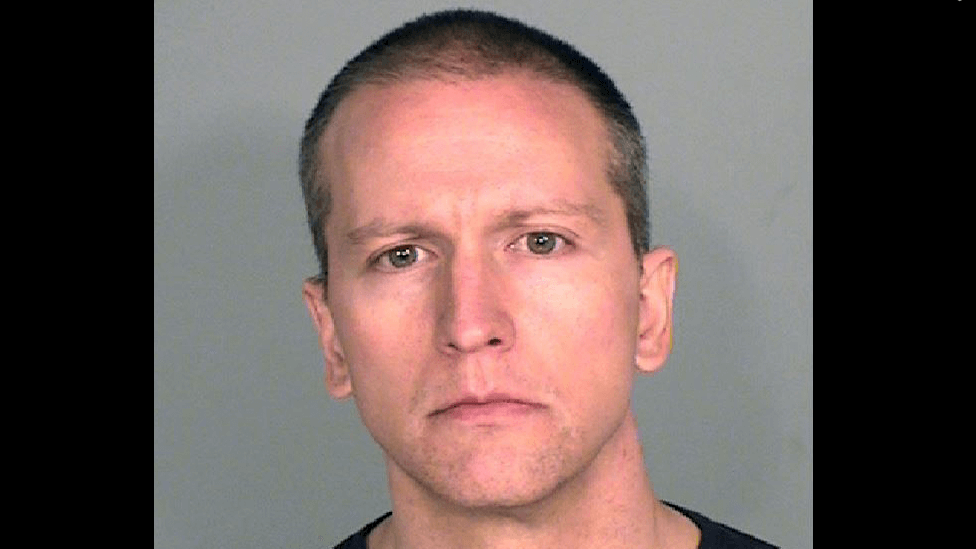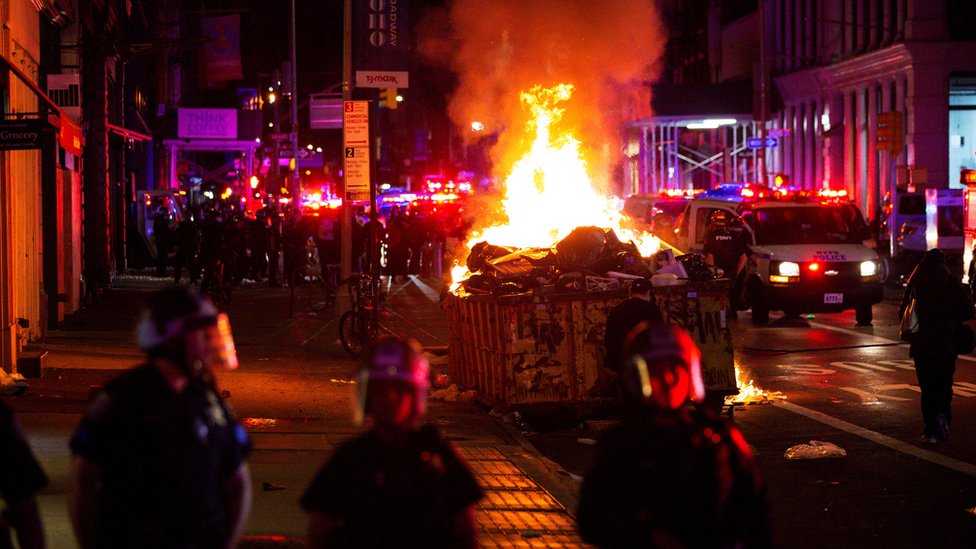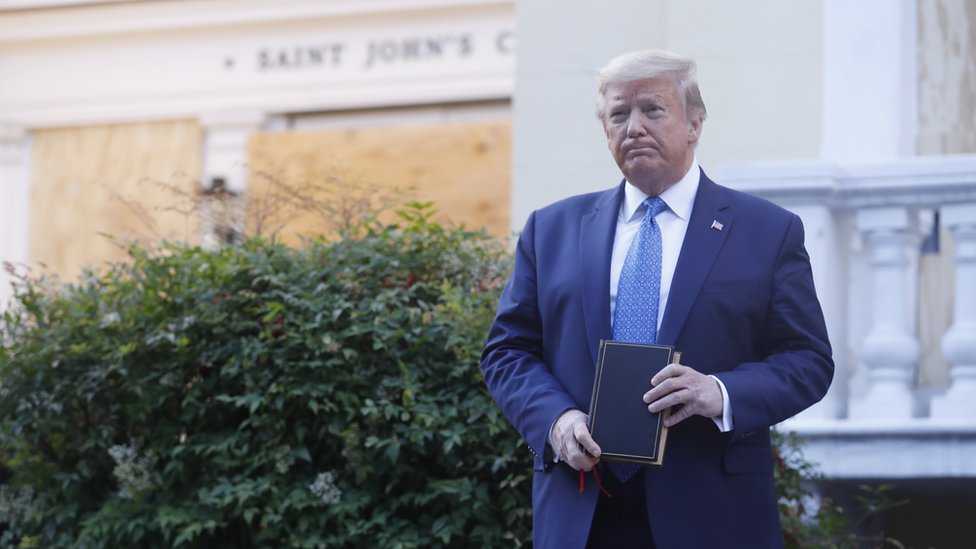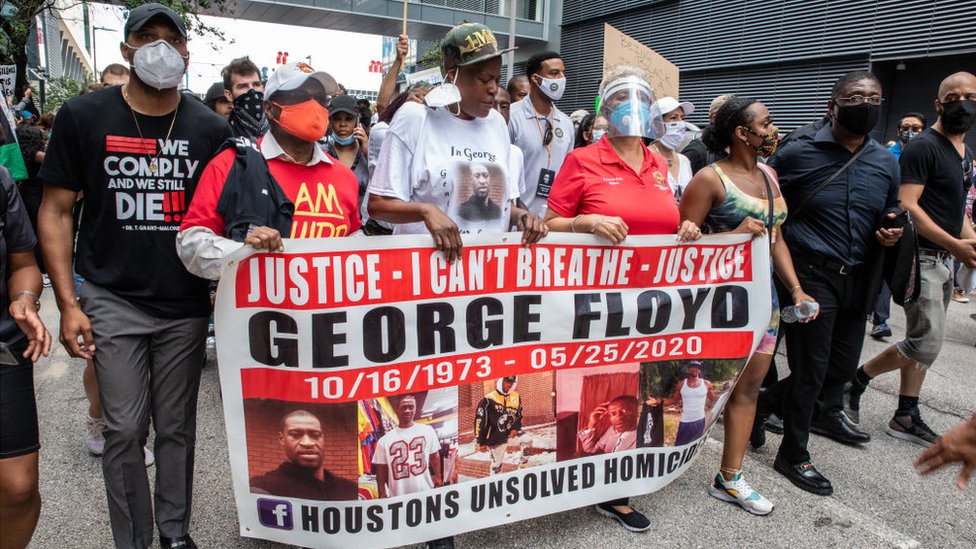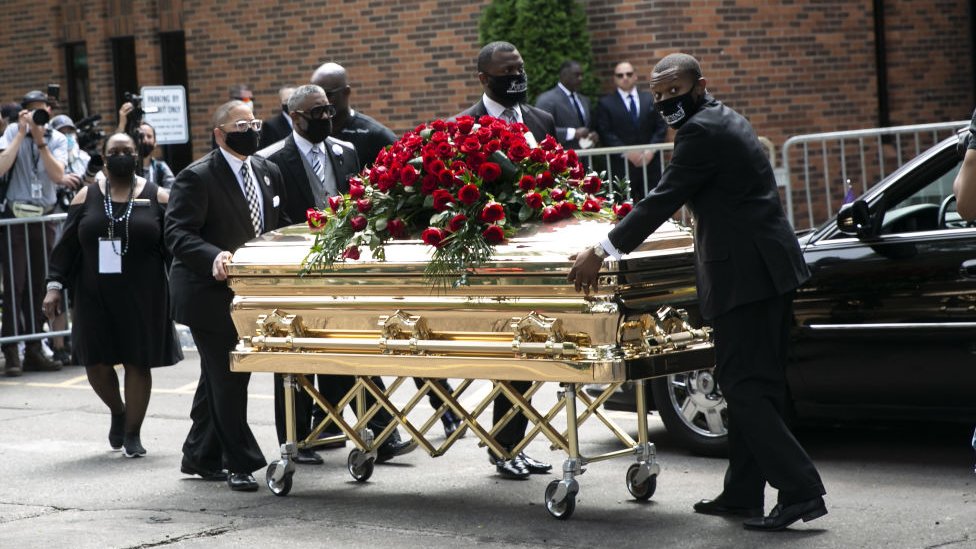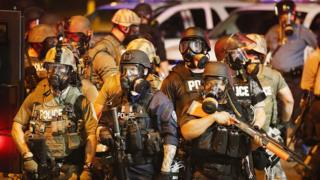 Image copyright Getty Images
Image copyright Getty Images US Democrats in Congress have proposed sweeping legislation to reform American police, following weeks of protests against police brutality and racism.
The bill would make it easier to prosecute police for misconduct, ban chokeholds, and addresses racism.
Its comes as Minneapolis lawmakers vowed to disband the city’s police force.
The death of George Floyd at the hands of a white officer there sparked national pressure for change.
However, it was unclear whether Republicans, who control the US Senate, will support the proposed Justice in Policing Act of 2020.
Mr Floyd’s brother is expected to testify to the House of Representatives later this week in a hearing on police reform.
What does the bill say?
The Justice in Policing Act of 2020 was introduced on Monday by top Democratic lawmakers House Speaker Nancy Pelosi, Senate Minority Leader Chuck Schumer, black senators Kamala Harris and Cory Booker and members of the Congressional Black Caucus.
As she unveiled the bill, Mrs Pelosi read the names of black men and women who have died at the hands of police in recent years.
The bill forces federal police to use body and dashboard cameras, ban chokeholds, eliminate unannounced police raids known as “no-knock warrants”, make it easier to hold police liable for civil rights violations and calls for federal funds to be withheld from local police forces who do not make similar reforms.
“The martyrdom of George Floyd gave the American experience a moment of national anguish, as we grieve for the black Americans killed by police brutality,” Mrs Pelosi said.
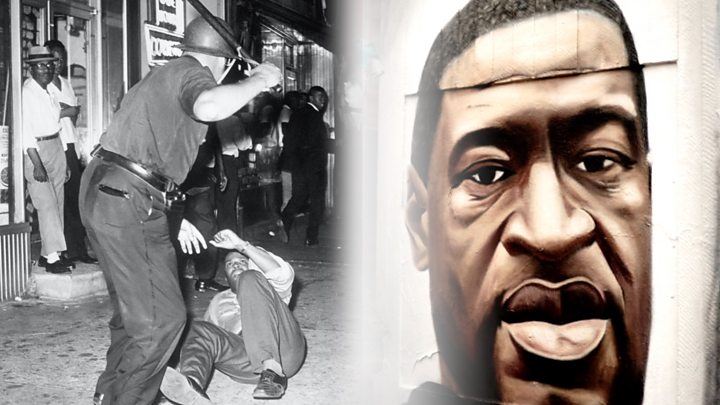
Media playback is unsupported on your device
“Today, this movement of national anguish is being transformed into a movement of national action”.
The bill makes lynching a federal crime, limits the sale of military weapons to the police and gives the Department of Justice the authority to investigate state and local police for evidence of department-wide bias or misconduct.
It would also create a “national police misconduct registry” – a database of complaints against police.
Some Republican leaders have said they would consider the possibility of writing their own bill, with a hearing scheduled in the Senate Judiciary committee next week.
However, members of President Trump’s party have been largely reticent on signalling support for legislation.
In a break with his party, Republican Senator Mitt Romney on Sunday tweeted pictures of himself marching towards the White House with Christian protesters, with the caption “Black Lives Matter.”
What chance does the bill have?
The reform package, crafted by Democratic leaders in Congress, can be viewed as the “official” position of the party – at least for now. It is, in part, an effort to head off more drastic measures that some on the left, under the slogan “defund the police”, are pushing.
If the Democrats can keep their liberal ranks in line, they should be able to get the reforms passed in the House of Representatives, where they have a majority. The outlook is less certain in the Republican-controlled Senate – particularly if Donald Trump sees political advantage in trying to paint Democratic proposals as a threat to “law and order”.
While there is sure to be plenty of heated rhetoric from national politicians during a presidential election season, the real change may end up coming from local officials who are more directly accountable to the voters in municipalities that have seen the largest protests.
The call to disband the police in Minneapolis, while largely symbolic at this point, could indicate that sweeping changes are very real possibility – with or without federal guidance.
This could be the beginning of series of local experiments in policing reform that take very different forms in different parts of the US.
More on George Floyd’s death
What’s happening elsewhere?
Introduction of the bill comes one day after a majority of the Minneapolis City Council has pledged to dismantle the local police department. Nine of the 13 councillors said a “new model of public safety” would be created in a city where law enforcement has been accused of racism.
But commentators say Minneapolis can now expect a long and complex debate over policing, and it remains unclear what form structural reform will take
New York City Mayor Bill de Blasio had already said he would divert money from the city’s police department to social services.
“Defund the police” was a rallying cry during the latest street protests, that occasionally spilled into violence and looting.
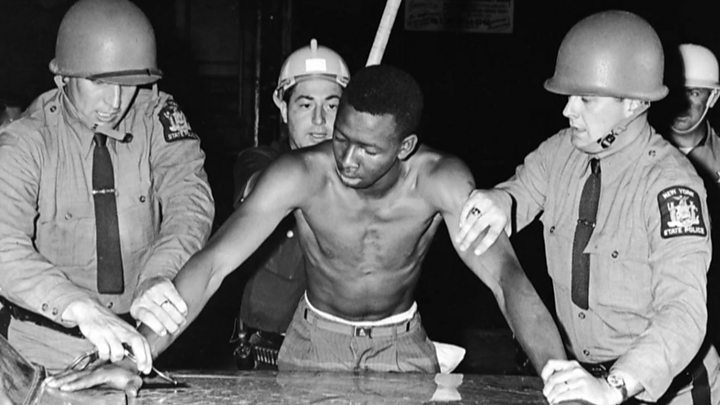
Media playback is unsupported on your device
“Defunding” advocates have for years been condemning what they describe as the aggressive militarised policing in the US.
They argue that police departments’ budgets should be slashed and funds diverted to social programmes to avoid unnecessary confrontation and heal the racial divide.
Entire city police departments have been disbanded before in the country: in Compton, California, in 2000, and 12 years later in Camden, New Jersey. In both cases they were replaced with bigger new forces that covered local counties.
What’s the latest on the protests?
Demonstrators gathered again on Sunday in US cities including Washington DC, New York, and Los Angeles – where a local broadcaster estimated 20,000 people had rallied down Hollywood Boulevard.
The protests were mostly peaceful, and security measures across the US were lifted as unrest started to ease. However, Seattle Police Department said a man drove a car into a demonstration there on Sunday night, before shooting and wounding a 27-year-old bystander.
The UK also saw sizeable weekend protests in support of Black Lives Matter, with demonstrations in cities including London, Manchester, Cardiff, Leicester and Sheffield.
Protesters in London knelt for a minute’s silence before chanting “no justice, no peace”.
In Australia, tens of thousands joined anti-racism protests in Brisbane, Melbourne, Hobart, Adelaide and elsewhere, despite warnings from officials over the coronavirus.
Click Here to Visit Orignal Source of Article https://www.bbc.co.uk/news/world-us-canada-52969375



